Like a Dragon Infinite Wealth review: A modern classic
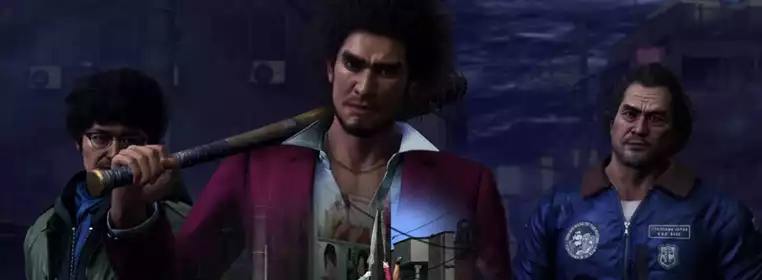
All things end, but new things will always take their place. This is the infinite cycle of life, and we each only get one turn on it. The difficult part is recognising when your turn is over, accepting it, and moving aside.
Like a Dragon: Infinite Wealth is a tale of many different people on that cycle. Some are reaching the end, some are right at the beginning, and some have yet to learn where they stand. Others seek to break the cycle altogether, regardless of the consequences.
GGRecon Verdict
Like a Dragon: Infinite Wealth takes all of the great ideas introduced in the previous game, and expands on them. New mechanics round out the established gameplay into something more refined, new characters mesh with the old to create amazing stories, and the new Dragon carries the torch for the old. It is the culmination of everything great about Like a Dragon's past and present, and an extremely promising look to the future.
A new world

 Click to enlarge
Click to enlargeLike a Dragon: Infinite Wealth is the eighth main entry in the long-running Like a Dragon/Yakuza franchise, and the second chapter of the Kasuga Ichiban story. It has been a couple of years since we last saw our hero. The dust has finally settled after the Great Dissolution that brought about the end of the Omi Alliance and the Tojo Clan. In this post-Yakuza world, Kasuga is a civilian now. He has a job at Hello Work helping others to find jobs, he has a home, he has friends, and he has a new life.
The Kamurocho 3K Plan and the subsequent dissolution of the Yakuza have been core to the plot of the last few games. We got to live through it once again in the recent Like a Dragon Gaiden. To finally see the other side, what this world is like after the Yakuza are gone, is where Infinite Wealth takes us.
While Ichiban has managed to land on his feet in the aftermath of the Great Dissolution, most other Yakuza did not. Arakawa, Ichiban's father figure (and turns out, his real father), had a goal to help former Yakuza find work and a new life after the organisation disbanded. With Arakawa gone, Ichiban has taken it upon himself to achieve his father's dream.
Hence the job in Hello Work, a position from which Ichiban can help former Yakuza to find their way. Most of them cannot get proper jobs due to the 5-Year Clause that prevents ex-Yakuza from opening bank accounts, getting insurance, and many more essentials for a normal life. For them, Ichiban has other ways of helping, such as finding unusual work that they can take on, signing up for phone plans on their behalf, and so on.
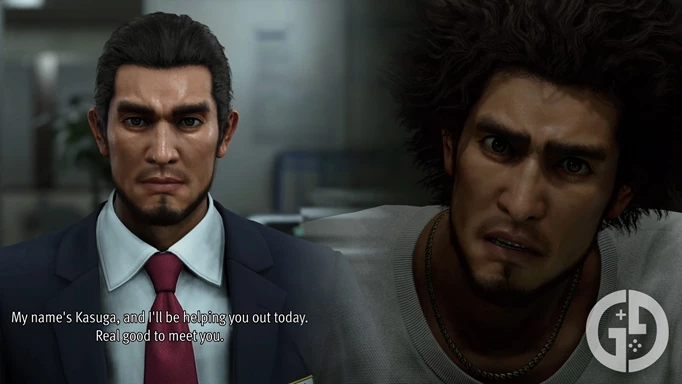
 Click to enlarge
Click to enlargeA big part of Yakuza: Like a Dragon was Ichiban's story of starting over. He left prison and returned to nothing more than a bullet to the chest, but managed to get his life on track while seeking answers for what had happened. To the bitter end, he begged and pleaded with Masato Arakawa, who he saw as his brother, to give up his corrupt ways and start from scratch as well- because Ichiban has that kind of pure faith in others.
In Infinite Wealth, Ichiban tries to extend that faith to everyone who needs it. He helps people that society has deemed beyond help, or chosen to forget about. Whether it be the former Yakuza who come to him desperate for a new chance or the companions he meets along his new journey.
Through a series of strange events, Ichiban's life comes crashing down yet again, but a glimmer of hope sends him on his first-ever overseas trip, to Hawaii. The reason? His mother is alive and has been on the island for 40 years.
Ichiban, at a turning point in his life, takes this trip to connect with the mother he never knew. Sure enough, it isn't long before this innocent holiday becomes entangled in conspiracy and organised crime. It is a Like a Dragon game, after all.
If you were worried that Ichiban's peaceful journey of self-discovery would mean any drop at all in the typical level of madness and intrigue these games are known for, fear not. There is plenty of hijinx for Ichiban and co to get wrapped up in while in Hawaii, and wouldn't you know it, said hijinx directly involves Ichiban's long-lost mother.
Forging new bonds, and rekindling the old
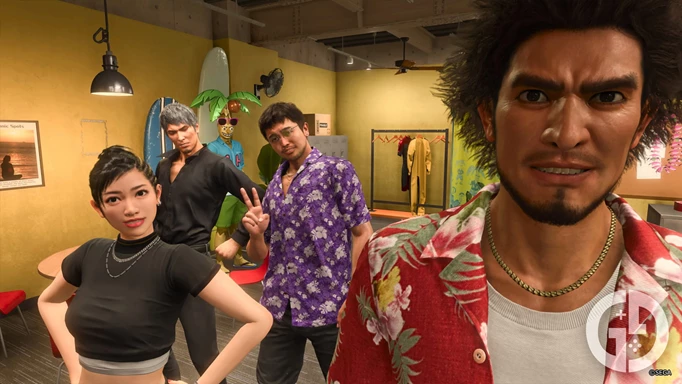
 Click to enlarge
Click to enlargeAlong the way, Ichiban makes new friends and reconnects with others. In a level of coincidence only found in a Like a Dragon game, Kiryu Kazama also happens to be in Hawaii and also happens to be looking for Ichiban's mother. Kiryu doesn't know why she is so important to his political masters, but considering every gang in Honolulu is also desperately searching for her, she clearly has some significance.
Ichiban befriends Eric Tomizawa, a cab driver who tried to mug him shortly after he arrived in Hawaii, and Chitose Fujinomiya, his mother's cleaner who drugged Ichiban and left him naked on the beach.
Much like Han and Zhou in the previous game, Ichiban tends to gain the trust of those who were once enemies and force them into friendship with his unending kindness. Both Tomizawa and Chitose have troubled backgrounds and deeper reasons for their transgressions, and like many others in this story, seek a different life.
The fourth member rounding out the group is, of course, Kiryu himself. Seeing Kiryu in a supporting role after nearly two decades as the primary protagonist is interesting as we get to learn more about him as a person from this new perspective, and he gets to be a more rounded character in this role.
This is not the first attempt to bring others to the forefront, but Ichiban is certainly the most definitive replacement for Kiryu we have seen so far. This frees Kiryu up to be something other than the immovable object he has always had to be - and with good reason.
We learn early on in Infinite Wealth that Kiryu is sick, he has cancer and he does not have long left to live. Until now, the Yakuza/Like a Dragon series has mythologised this man into a demigod, an unstoppable force of nature who has never met a problem he couldn't solve with his fists.
To see Kiryu brought so low by this disease is genuinely heart-wrenching, as while he has always had a softer side, he has never needed the help of others as much as he does now. While I'd much prefer a less lethal method, there is hardly a better way for Kiryu to pass the torch to Ichiban. Kiryu cannot fight like he used to, and Ichiban must take his place to save the day.
Iterating on innovation
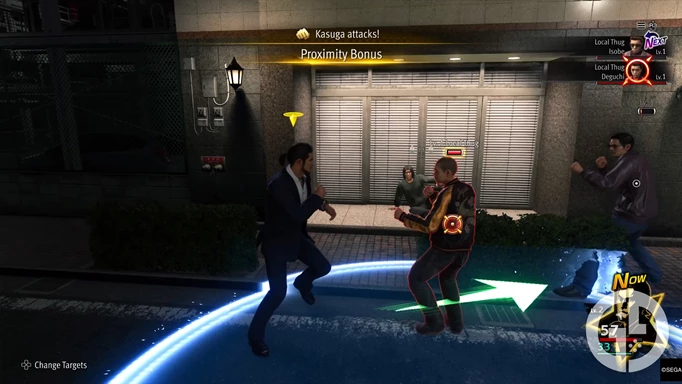
 Click to enlarge
Click to enlargeIn Yakuza: Like a Dragon, RGG Studio committed to a new hero and a new style of combat based on turn-based RPGs. That game was a step in a new direction, and Infinite Wealth has solidified this new path as the way forward for the franchise. The previous game was experimental and made a lot of big gambles that thankfully paid off. Now, it is time to double down.
A handful of small but fundamental changes have transformed the combat into the system it feels it was always meant to be. For example, you can now move around a limited space while in combat, allowing you to have control over where your attacks land, what angle you attack from, and so on.
This goes hand-in-hand with the increased information given about your attacks. Rather than using a Mega Swing and hoping it hits everyone around the enemy in the middle, you can now see a circle on the ground that shows you the area of effect. This also works for attacks that hit in cones, lines, and also shows you the direction in which your attack will knock back an enemy.
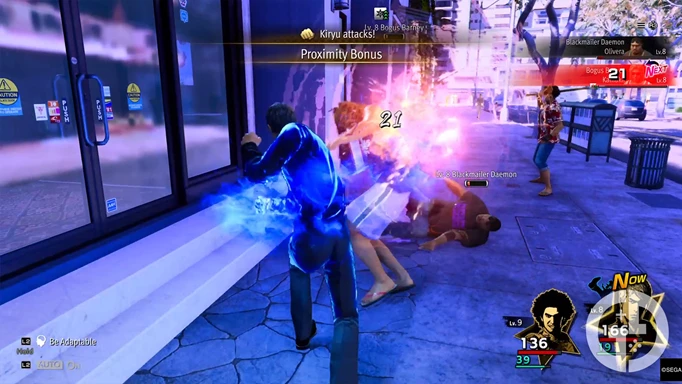
 Click to enlarge
Click to enlargeThis is important as knocking enemies into each other is now a crucial mechanic. This completely changes your priorities when it comes to attacking enemies, as the collateral damage is huge. Furthermore, shoving enemies into your teammates will grant them an attack of opportunity, further expanding the tactical choices you have to make in every battle.
Another significant change is the addition of an active block system. While you can still set your characters to block on their turn, you can now also press the block button at the moment an attack lands to perform a Perfect Block, reducing the damage and chance of status ailment considerably.
These changes working in tandem make the combat feel more interactive and engaging, the kinds of features that you won't believe were ever missing.
The many hats of Kasuga Ichiban
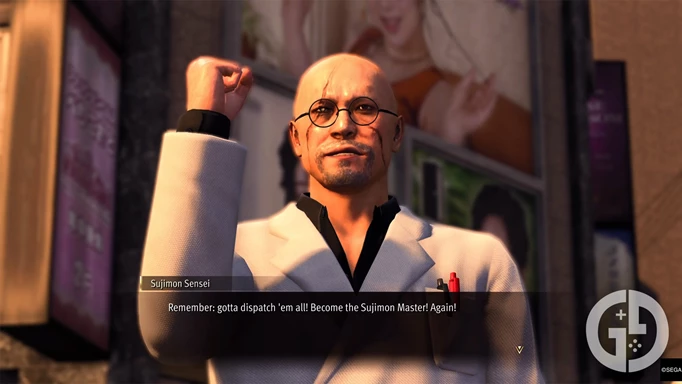
 Click to enlarge
Click to enlargeInfinite Wealth contains all the extra content we have come to expect from Like a Dragon. In fact, I could have just said it contains 'all the content' and that wouldn't be far from the truth. We've got karaoke, batting cages, driving ranges, restaurants, shops, arcades, and more. There are dozens of side stories to fall into, and a litany of goals beyond the main story to complete.
The Sujimon return from the previous game - expanded into almost an entire Pokemon game within Infinite Wealth. Not only must you fill out your Sujidex, but you can also get Sujimon to join your team, train them up and battle them against other Sujimon trainers.
There are SujiStops all over Honolulu and raids where you can battle powerful Sujimon. All of this is in service of your ultimate goal, defeating the strongest trainers in Hawaii, the Discreet Four, and becoming the Sujimon Champion.
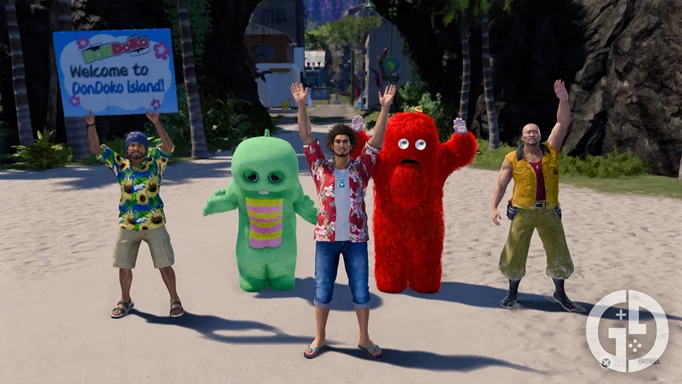
 Click to enlarge
Click to enlargeIf one entire classic Nintendo game lifted and dropped straight into Like a Dragon wasn't enough, there is also Dondoko Island. During one of his adventures, Ichiban is knocked out and wakes up on this dilapidated resort island. He meets the owner and the local mascots who despair at their situation; a pirate waste company has been using their island as a dump and they don't have the strength to fight back.
The job becomes yours to clean up the island, restore it to its former glory, and defeat the dumpers once and for all. As you expand your working area by removing trash, you can place buildings, amenities and other features around the island, and then invite guests to come and stay at your resort.
All the while, you can go fishing, catch bugs, and fight off the bin pirates. If you ever wanted to know what the LaD version of Animal Crossing would look like, you no longer have to wonder. Personally, I found Dondoko Island much more engaging than the fake Pokemon game (no, not that one), but the sheer effort and level of quality in both aspects is astounding in what is already a 100-plus hour roleplaying game.
Double Dragons
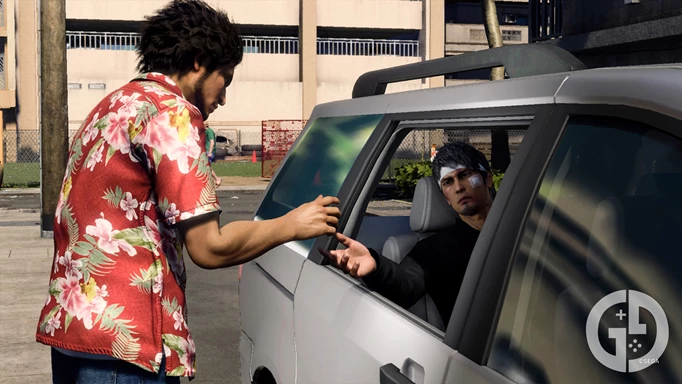
 Click to enlarge
Click to enlargeWe have established that Infinite Wealth contains the content of multiple games, and to be honest, I'm not even close to finishing listing everything you get to do. Spoilers ahead for the middle of the game, but you might have figured this out if you paid close attention to the trailers and promo material.
Much like Yakuza 0, Infinite Wealth has dual protagonists. Without spoiling the specifics of why and how, a bit of the way into the game, Kiryu leaves the party and returns to Japan. From here, the game splits its time between Ichiban and Kiryu, with each gaining their own objectives.
What is even more interesting in this game is that, as this is still an RPG, we now have two parties to work with. While it might have been interesting if Kiryu's side of the game reverted to classic Yakuza action, I think it is far better that he finds himself having the same strange delusions as Ichiban, and starts seeing the world like a role-playing video game.
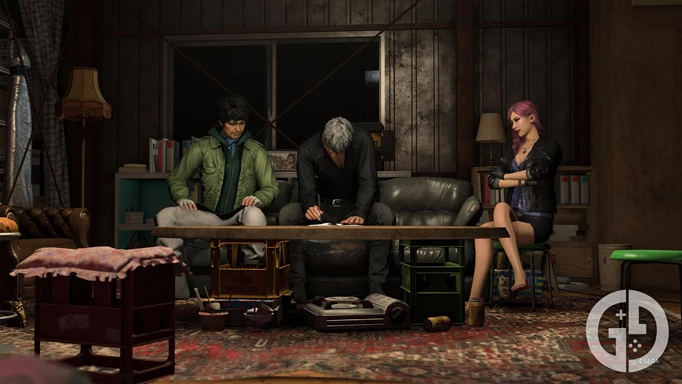
 Click to enlarge
Click to enlargeGiving Kiryu some time in the spotlight in this new style of game is an ideal send-off, we get to play as him in this new ruleset, give him different jobs, level up his bonds, and expand his relationships with his party. This is doubly effective as seeing Kiryu develop bonds with his party makes him more human.
The relationships between the characters have always been an important part of Yakuza/Like a Dragon, and now that Kiryu travels with a party of friends, this aspect is elevated even higher. Making the Dragon of Dojima a much more relatable person in his dying days, as he faces the most relatable problem of all, is a beautiful example of game design reinforcing the story.
Kiryu's side of the story in Infinite Wealth acts both as a history lesson for new fans, and a trip down memory lane for the old fans. While he is by no means done fighting just yet, a big part of his story is his bucket list. Nanba, Seonhee, and Saeko join Kiryu in an attempt to live up the last of his time. Completing the bucket list includes completing unfinished business, meeting old friends and rivals, and reminiscing all around Yokohama and Kamurocho.
There is a gameplay purpose to this as well, as filling out the bucket list helps Kiryu remember his strength, and become more powerful in battle. As has often been the case in the past, you need to complete a laundry list of side objectives to help Kiryu regain his former strength.
The Achilles' Heel
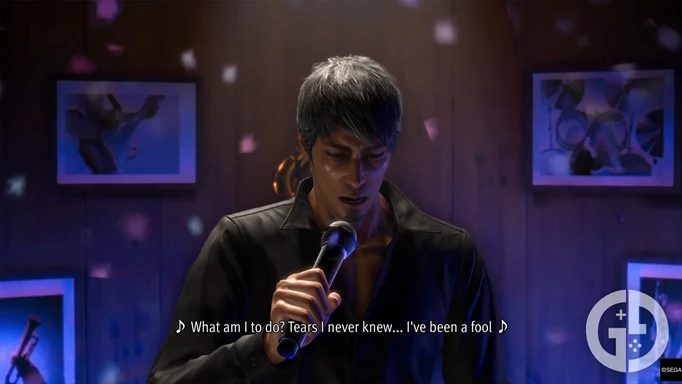
 Click to enlarge
Click to enlargeI've been singing this game's praises for a while now, so surely it has some downsides? Well, the Like a Dragon franchise's ancient enemy has reared its ugly head once again: English voice dubbing.
Quick history lesson: the first Yakuza game launched with English voice acting, even bringing in some heavy hitters like Michael Madsen and Mark Hamill. However, the game bombed in English-speaking markets, and the cheesy voice acting was partly to blame. Hence why the series largely retreated to Japan and rarely included localised voices going forward.
Only in the last decade or so, largely due to Yakuza 0 catching on, has the franchise become significantly more popular worldwide. The games have had excellent English translations since the early days, mostly presented through subtitles over the original Japanese voice acting. However, the increasing popularity of the series around the world has brought the issue of English dubbing back to the surface, and it has been contentious, to say the least.
While the English-speaking actors make a valiant effort, they pale in comparison to the powerful performances of the Japanese cast. The original voices perfectly mould the characters into every ridiculous, dramatic, joyful, and sorrowful scene, whereas the English performances are a bit flatter throughout. If subtitles aren't your thing at all then it is good to have the game fully voiced in English, but I really cannot recommend it.
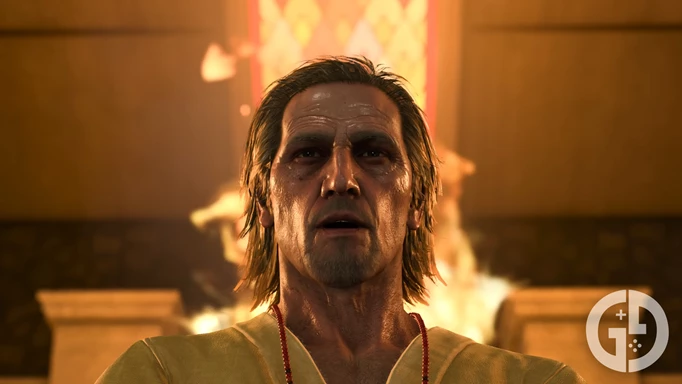
 Click to enlarge
Click to enlargeThat said, the dodgy voice work is not contained to the English dub. Coming to Hawaii, the first location outside of Japan in the series' history, presents many challenges. Most of these are overcome expertly, like the different locations and customs. However, the issue of language crops its head yet again.
While playing the game with Japanese voice actors, you will inevitably meet characters who primarily speak English, and oh boy do they stand out like a sore thumb. Between the overall English dub and the moments of English speaking in the Japanese dub, it just generally feels like there was a lack of effort put into finding English speakers. One of the primary antagonists is a white man who grew up in Hawaii, and although his Japanese is flawless, his English (which is performed by his Japanese voice actor) is barely understandable.
The solution to all of this is to avoid the English language like you're Quiet from Metal Gear Solid 5. No matter what, the voice-acting issues will find their way into your playthrough, but it really isn't an issue worth writing home about. If anything, it just adds another quirk to the silly legacy of the franchise.
That includes the English dub. I may give them a hard time, but the task of playing these characters in English is no small feat, and they gave it a hell of a try. The Japanese cast put in a powerful performance, it would be difficult for anyone to compare. Maybe Kiryu's English voice actor could get some singing lessons though, just saying.
Everything and more
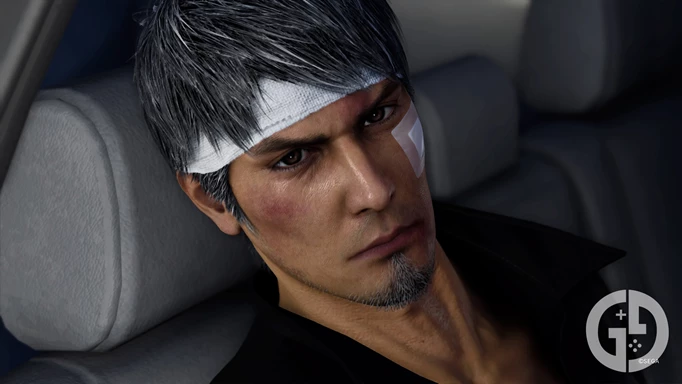
 Click to enlarge
Click to enlargeBeyond the occasional voice-acting issue, there isn't much to fault the game on. Between the 100-hour main story, dozens of side stories and activities, and two decent reimaginings of classic Nintendo games stuffed within Infinite Wealth, you could maybe criticise the game for not respecting your free time, but that's about it.
Like a Dragon Infinite Wealth feels like a complete picture of what was envisioned in the previous game. Yakuza: Like a Dragon established a formula for a modern classic RPG, and Infinite Wealth delivers on that promise in spades. The changes to the battle system perfectly round out the combat to make it more tactical and more fun.
Ichiban Kasuga is the perfect protagonist to carry the series forward, and having the dual perspectives of both him and Kiryu in this game is an excellent way to see off the past and embrace the future. I like to keep my reviews as spoiler-free as I can, but believe me when I promise you that I could write my thoughts about this game for weeks, I am so thoroughly engrossed in this world.
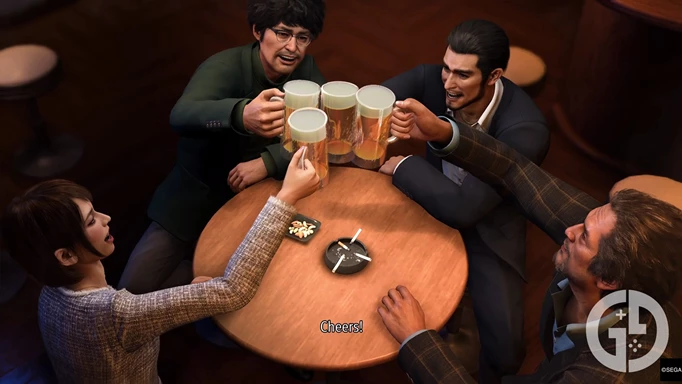
 Click to enlarge
Click to enlargeThe Verdict
Suffice it to say, Infinite Wealth has everything good about the Like a Dragon series going for it. The previous game was a revolution, a total change of what a Like a Dragon game is. Infinite Wealth is evolution, the ideas of the past polished and perfected. That statement is true of the new RPG mechanics, but also the world, the story, and the characters. Everything that has always been great in Like a Dragon, is superb in Infinite Wealth.
Ichiban's first adventure is as close to a perfect story as you can get, and Infinite Wealth does not fall short of that standard. This is not the first time that RGG has tried to put the Dragon out to pasture, but it is certainly the most fitting end for a legend. While Kiryu's time might be at an end, the next cycle is in safe hands with Ichiban and the gang.
5/5
Reviewed on PlayStation 5. Code provided by the publisher.
